We are Shaping the Future! Showcasing Success Stories as We Innovate for a Sustainable Tomorrow
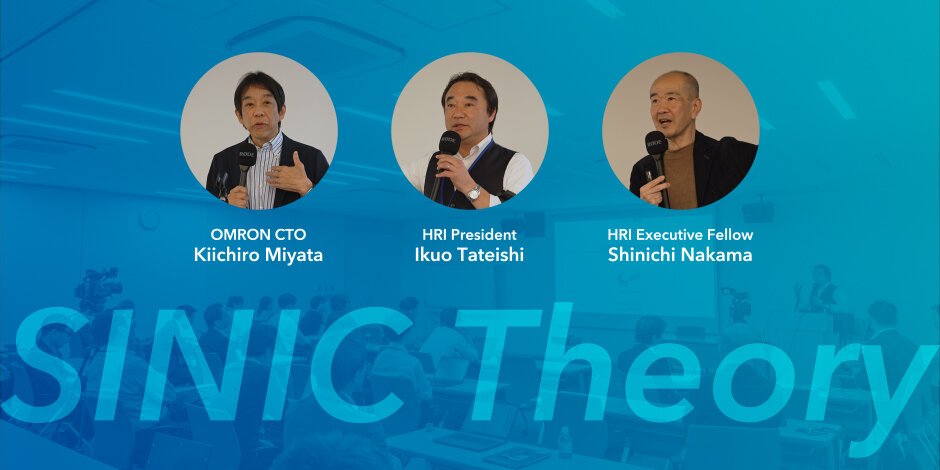
More than 1,000 employees participate in in-house study session on "SINIC Theory"
We often hear the term VUCA (Volatile, Uncertain, Complex, Ambiguous) referring to the unpredictable nature and the ever-evolving needs of the modern society. Contrary to this concept, in 1970, OMRON founder Kazuma Tateishi with his peers proposed a future predicting theory called "SINIC theory" at the International Future Society. As per SINIC theory, 2025 will be the year when the "Autonomous Society" begins. An Autonomous Society is a society premised on values that emphasize spiritual richness and growth through the pursuit of sustainability. It is a shift from the society that has been premised on values that emphasize material richness and ever-increasing growth through mass production and mass consumption. Perhaps it is because we are in an era where old and new values collide and various social issues erupt. Recently, the future has often been spoken of as a dystopia.
Although the world is highly uncertain, this is an opportunity for OMRON to create new values as part of our commitment to our corporate philosophy. In November 2024, the Human Renaissance Institute (HRI), a think tank within OMRON group, hosted an in-house study session to deepen understanding of the near future. On the day, more than 1,000 employees from within the group participated, both in person and online, and the event was filled with OMRON employees' high level of interest in shaping the future, and their strength and brightness in paving the way for the future.
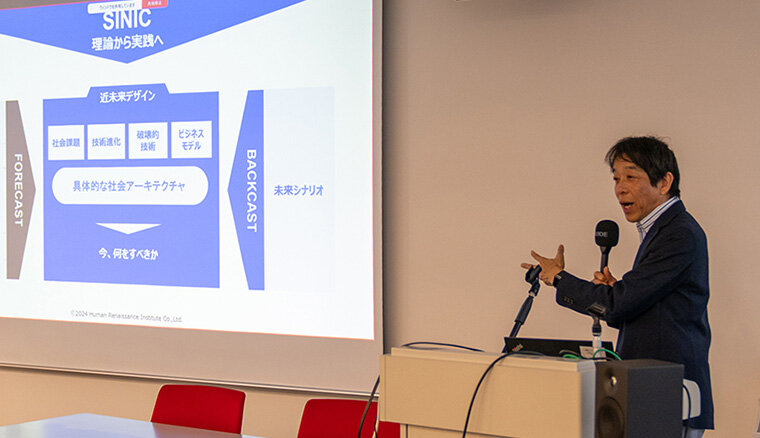
Representative Director,
Executive Vice President and CTO Kiichiro Miyata
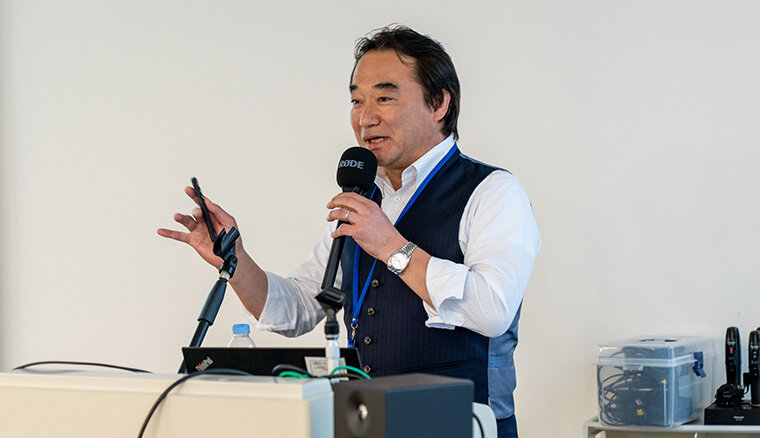
HRI President and CEO
Ikuo Tateishi
The study session began with Representative Director, Executive Vice President and CTO Kiichiro Miyata explaining the meaning and perspective of predicting the future for OMRON. Afterwards, HRI Representative Director and President Ikuo Tateishi and HRI Executive Fellow Shinichi Nakama spoke about the background to the creation of the SINIC theory, its implementation to date, and the concept of an Autonomous Society. They introduced hints for near-future design, such as the requirements for establishing an Autonomous Society and predictive topics. Specific excerpts below:
„ÄÄ
The SINIC theory is an original OMRON theory that unravels how people and society have developed since the beginning of recorded history, and draws a vision of how they will develop and progress in the future. Announced in the midst of Japan's high economic growth, when personal computers and the Internet did not exist, this theory accurately depicts a social scenario up until the first half of the 21st century, including the emergence of an information society.
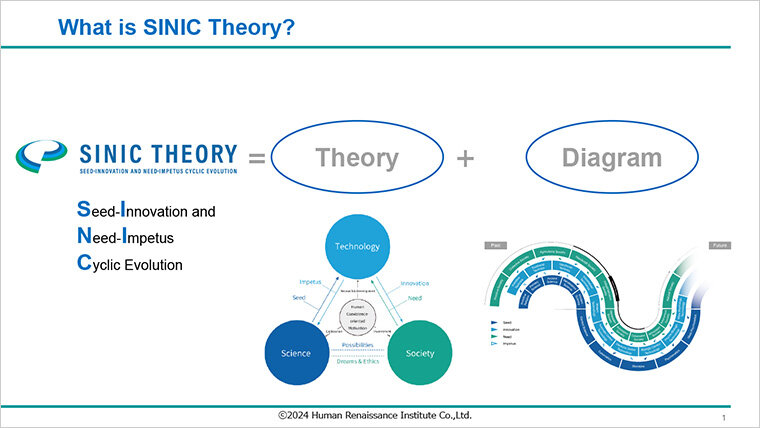 SINIC theoretical concept (from study materials, same below)
SINIC theoretical concept (from study materials, same below)
SINIC, an acronym for "Seed-Innovation to Need-Impetus Cyclic evolution," refers to the development of science, technology, and society through mutual influence. Science becomes the seed of technology, technology stimulates social innovation, society generates the need for technology, and technology stimulates science. This is a framework with a basic structure in which the interaction between science, technology, and society is driven by human desire for symbiosis, accelerating evolution in a circular manner.
„ÄÄ
OMRON's universal philosophy is the company motto established in 1959, "To improve lives and contribute to a better society." The founder incorporated two thoughts into this motto. The first was the public nature of the company, "Contributing to the development of society through our business." The second was the determination to "be the pioneer in changing society." A better society will not come by waiting. New value can only be created if someone takes on the challenge. This motto embodies OMRON's determination to achieve that. The SINIC theory was born from the idea of survival of the fittest, which requires anticipating social needs, and the need to predict the future society on three time axes: near, mid, and far.
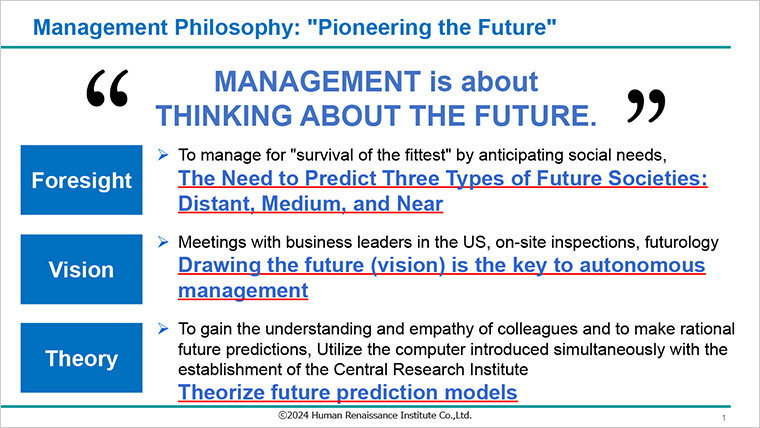 The management philosophy cherished by our founder
The management philosophy cherished by our founder
„ÄÄ
An "Autonomous Society" is one in which spiritual richness is emphasized and values are shifting from individual to collective. We define this as a society in which living the way one wants results in harmony with society and contributes to creating value for a better society.
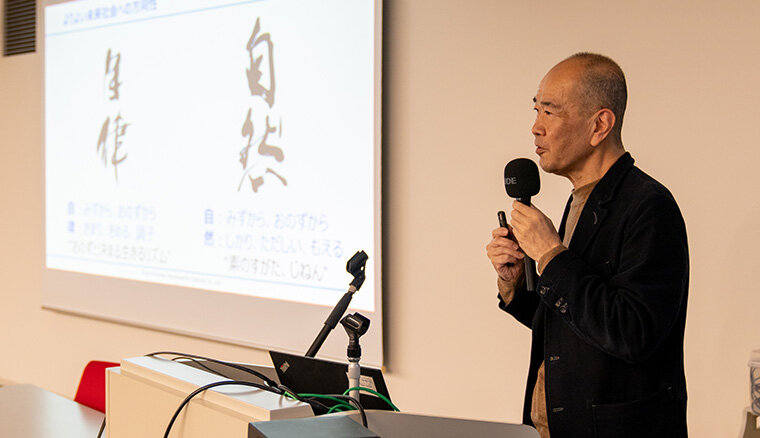 Executive Fellow at HRI Shinichi Nakama
Executive Fellow at HRI Shinichi Nakama
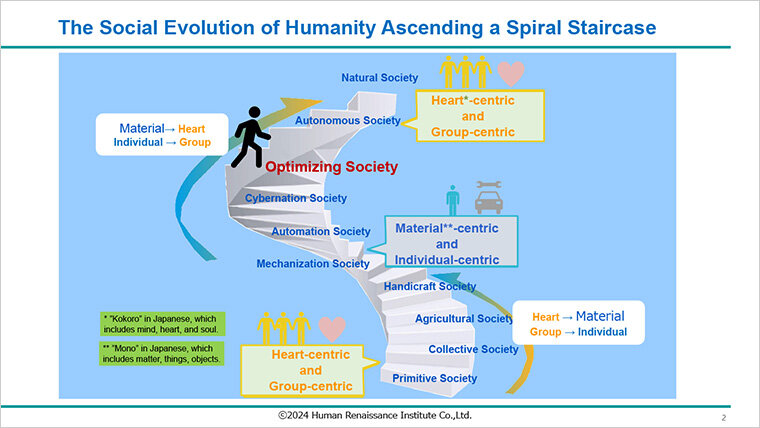
A diagram of the spiral of human social evolution
through the circulation of values
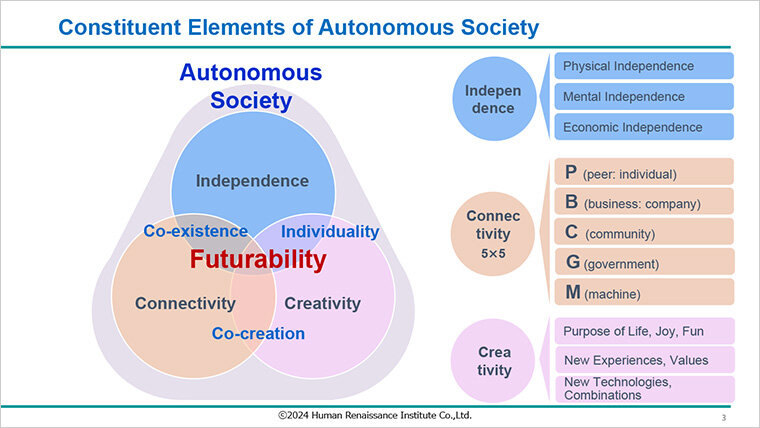
*Constitutive elements of an Autonomous Society
In a survey of participants after the study session, 99% expressed a desire for the session to continue, and many expressed plans to take action in the future, saying things like, "I've become able to view the future more positively," and "I wish we had more time to discuss the topic."
In its long-term vision "Shaping the Future 2030," which began in 2022, OMRON has set three social issues to address: "Achieving carbon neutrality," "Realizing a digitalized society," and "Extending healthy life expectancy." This study session further enhanced employees' understanding of the near future and autonomous society. Based on its corporate philosophy, OMRON will continue to improve its corporate value by creating innovations, products, and services that contribute to creating a better autonomous society.